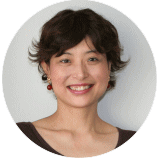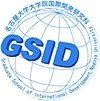Education and human resource in developing countries
|
名古屋大学国際開発研究科 Graduate School of International Development,Nagoya University
山田肖子ゼミにようこそ Welcome to Shoko Yamada's Seminar |


ゼミについて Yamada Seminar
|
In this seminar,Master's and Ph.D.students learn about various aspects
of education and human resource in developing countries in Africa,Asia,and
other parts of the world. |
 |
||
![]() 開講科目 / Courses Offered (Year2017)
開講科目 / Courses Offered (Year2017)
教育開発政策論 / Educational Development Policies
教育・人材開発演習 / Education and Human Resource Development
![]() 入試問題 / Entrance Exam
入試問題 / Entrance Exam
![]() 参考図書 / Introductory Textbooks
参考図書 / Introductory Textbooks
1.教育開発について
-黒田一雄 他(編)「国際教育開発論:理論と実践」有斐閣(2005)
-小川啓一 他(編)「国際教育開発の再検討:途上国の基礎教育普及に向けて」
東信堂(2007)
-山田肖子「国際協力と学校:アフリカにおけるまなびの現場」創成社新書(2009)
-岡田亜弥 他(編)「産業スキルディベロプメント:グローバル化と途上国の人材育成」
日本評論社(2008)
-米澤彰純「高等教育の大衆化と私立大学経営」 東北大学出版会(2010)
2.アフリカについて
-舩田クラーセンさやか(編)「アフリカ学入門:ポップカルチャーから政治経済まで
明石書店(2010)
-山田肖子(編)「アフリカのいまを知ろう」岩波書店(2008)
[English Textbooks for Educational Development]
- Lauder, Hugh, et,al. Education, Globalization & Social Change.
Oxford University Press (2006)
- Brint, Steven. Schools and Societies. Stanford Social Sciences (1998)
- McMahon, Walter W. Education and Development: Measuring the Socia
Benefits. Oxford University Press (1999)
- Thomas, Murray (Ed) Education's Role in National Development Plans:
The Country Cases. Praeger Press (1992)
セミナー等の開催 OpenSeminars, Symposium and other events
We have invited many distinguished scholars from within and outside of Japan to have Open Seminars,Symposiums,Workshops and other types of lectures on various issues on Education and Development.
Open Seminars
2 Jul 2019
Special lecture by Prof. Hiroyuki Ito
「黄色信号の中国経済」
[Poster][presentation]

8 Nov 2018
Special lectures by Dr. Angela Little and Dr. Keith Lewin
(1)"From Education policy to practice: drivers, incentives and threats"
By Dr. Angela Little
[Presentation]
(2)Development Alternatives Beyond Aid Dependence in Sub-Sahara Africa:
How much, to whom for what?"
By Dr. Keith Lewin
[Presentation]

21 Sep 2018
Open lecture by Prof. Crain Soudien
Crain Soudien教授による公開講座
(1)「 The Decolonisation debate in South Africa and its wider significance
for education」
[Presentation]
(2)「 Nelson Mandela: Beyond the Post-Colonial Towards a New Humanism」
[Presentation]
[Photos]
 16 NOV 2017
16 NOV 2017
国際教育開発フォーラム / International Education Development Forum
Open Seminar:
Dr. Aaron Benavot, University of Albany-SUNY Dept.of Educational Policy and Leadership, School
of Education
"Overview of the GEM Report series and the 2017/8 GEM Report"
[Presentation]

19 JAN 2017
Open Lecture:
The Social Status and Motivation of Teachers:Considering Changes of Teacher
Training Course in Malawi by Dr.Jun Kawaguchi,University of Tsukuba.
[Program]

21 DEC 2016
Educational Situation of Refugee Youth and Children in Kakuma Refugee Camp
in Kenya by Drr.Seiji UTSUMI, Kyoto Women’s University.
[Program]

5 NOV 2015
Trends in US Education and their Relationships to International Developmentin
Education by Dr.Christopher J.Frey, Bowling Green State University, Visiting
Reserach Faculty, Keio University.
[Program] [Presentation]

11 DEC 2014
Development of International Cooperation in Education in Japan by Dr. Yasuo
Saito,National Institute for Educational Policy Research.
[Program] [Presentation]

8 DEC 2014
Preventing Natural Resource Curse -Challenges of resource-dependent developing
economies by Dr. Kazue Demachi, Graduate School of International Cooperarion
Studies,Kobe University.
[Program] [Handout]

6-7 NOV 2014
Development of National Education System and EFA in Japan by Dr. Yasuo
Saito, National Institute for Educational Policy Research.
[Program] [Presentation1] [Presentation2]

17 AUG 2014
Talent Abounds: A Comparative Study of Master Teachers and Peak Performers by Prof.Robert F.Arnove, Indiana University, USA.
[Program] [Presentation]

24 JUL 2014
Global Citizenship and National History Textbooks by Prof. James H. Williams, The George Washington University, USA.
[Program] [Presentation]

10 FEB 2014
International Workshop - Varieties of Partnership in Development Cooperation: Institutions, Actors and Processes.
[Poster] [Program] [Photos]

23 JAN 2014
Trends in the 4th and 8th Grade Ethiopian National Learning Assessment
by Prof.Desalegn Chalchisa Jebena, Addis Ababa University, Ethiopia.
[Program] [Presentation]

30 OCT 2013
New approaches to higher education in Africa: Example of University for Development Studies, Tamale, Ghana by Prof. G. Kranjac-Berisavljevic,
University for Development Studies, Tamale, Ghana.
[Program] [Presentation]

18 OCT 2012
Engaged area studies approach in the arena of African local knowledge formation and sharing: Report of 2012 Summer field work by Dr. Masayoshi Shigeta,
Graduate School of Asian and African Area Studies, Kyoto University.
[Program]

27 MAR 2012
China-Africa Education Cooperation under the Framework of FOCAC by Dr Niu Changsong, Associate Professor, Institute of African Studies,
Zhejiang Normal University, China.
[Program] [Presentation]

19 JAN 2012
Learning to read and numerate in the developing world: A comparative study of reading and mathematics curricula and tectbooks
by Dr Aaron Benavot, Professor, Global Education Policy, Dept of Educational Administration and Policy Studies, State University of New York Albany USA,
Former Senior Analyst on UNESCO EFA Global Monitoring Report.
[Program] [Presentation]

10 NOV 2011
Transnational Civil Society vs. Global Educational Culture: Children's Rights in Historical Perspective by Dr. Eckhardt Fuchs, Deputy Director, Georg Eckert
Institute for International Textbook Research, Germany.
[Program] [Presentation]

13 OCT 2011
Education Sector Analysis: An Introduction by Dr. John C. Weidman, Professor, School of Education, University of Pittsburgh, USA.
[Program] [Presentation1] [Presentation2]

17 JUN 2011
Post-disaster Psychosocial Care for Children: Considerations in psychosocial care programming in the aftermath of the March 11th earthquake and tsunami
by Ms. Ryoko Honda, Clinical psychologist, Institute for Family Functioning.
[Program] [Presentation]

14-16 JUN 2011
1. Memory work in researching violence against children and young people: Kenyan university student teachers learning from a life cycle approach.
2. Qualitative Research: An Overview by Prof. Fatuma N. Chege, Kenyatta University, Kenya.
[Program] [Presentation1] [Presentation2]

31 JAN 2011
Educational Development Issues in Southeast Asia: An Overview by Dr.Gerald W. Fry, Educational Policy and Administration at University of Minnesota, USA.
[Presentation] [Handout]

25 JAN 2011
1.Pathways to Effective School and Classroom Assessments:The Case of Ghana.
2.Language of Instruction in Elementary School Education:The Tension between Policy and Implementation by Dr.Joseph Ghartey Ampiah, University of Cape Coast, Ghana.
[Program] [Presentation1] [Presentation2]

7 JUL 2010
Reseaching powerful people:a neglected aspect of development studies by Dr. Chris Williams, University of Birmingham,UK.
[Program] [Presentation]

1 JUL 2010
Comparative Education by Dr.Shinichi Suzuki, Professor Emeritus, Waseda
University.
[Program] [Handout]

16 NOV 2009
Literacy Development in a Multilingual Society: Experiences from Nigeria by Dr. Oyenike Adeosun, University of Legos, Nigeria.
[Program] [Presentation]

17-19 JUN / 1-3 JUL 2009
International Educational Cooperation by a Multi-lateral Organization -UNESCO in the Field of Education-by Prof. Akihiro Chiba, Advisor for Institute
for Educational Research and Service, International Christian University.
[Program] [Syllabus1] [Syllabus2] [日本語版]

4 FEB 2009
Educational Development - the role of researchers and international community by Prof. Mark Bray, Director of UNESCO International Institute for
Educational Planning.
[プログラム]

10-11 NOV 2008
1. The Further Role of Comparative Education in INternational Development.
2. Making Educational Policies at the World Bank by Dr. Stephen Heyneman, Vanderbilt University, USA.
[Program]

12 JUN 2008
Historical Development of Japanese International Cooperation in Education -Why was the aid for basic education a "taboo"?- by Prof. Yasuo Saito, National
Institute for Educational Policy Research.
[Program] [Presentation] [Transcript]

Symposium and Workshops
16 NOV 2017
国際教育開発フォーラム / International Education Development Forum
[Program]
シンポジウム / Symposium:
Dr. Aaron Benavot, University of Albany-SUNY Dept.of Educational Policy and Leadership, School
of Education
"Will a global learning metric improve equity in education?"
[Presentation]
Dr. Samsideth Dy, Director-General for Education and Head of Secretariat of the Education
Research Council, Ministry of Education, Youth and Sports, Cambodia
"Placing Equity at the Centre of Teacher Education Reform"
[Presentation]

26 JAN 2015
Interantional Symposium - Critical Perspectives on Education and Skills
in the Emerging Post-2015 Development Agenda.
Organizaed by JASID-Tokai and GSID.
[Program] [Photos]
1.Prof.Yoshida:Post-2015 education Development:Perspectives from Japan.
2.Prof.Bong:Post-2015 and Korean Education ODA.
3.Prof.Huang:Post-2015 Global Development Agenda and China's Standpoint.
4.Dr.Burnett:Comparative Remarks.

10 FEB 2014
International Workshop - Varieties of Partnership in Development Cooperation: Institutions, Actors and Processes.
Sponsored by NRF and GSID.
[poster] [Program] [Photos]

1 MAY 2013
Lecture at World Bank - Findings from Ethiopia on Determinants of ‘community
participation’ in Education.
Presented by Dr. Shoko Yamada in Washington D.C.
[Program]

26-27 OCT 2012
Interantional Education Development Forum.
Co-hosted with Waseda University at Graduate School of Asia-Pacific Studies,
Waseda University.
[Background and Purpose] [Program] 
25 OCT 2012
国際シンポジウム「教育分野におけるアジア新興ドナーと日本:アジアらしさの模索と多様性」(JICA研究所共催)
Interantional Symposium on Asian Emerging Donors and Japan in Education
Sector Development Cooperation.
Held at the International Conference Hall, JICA Research Institute, Tokyo.
[概要&プログラム] [活動報告] [Purpose and Program] [Report]

6 OCT 2012
第2回アフリカ子ども学を語る会「働くことを通じた学び」 中部学院大学各務原キャンパス
[概要とプログラム]


